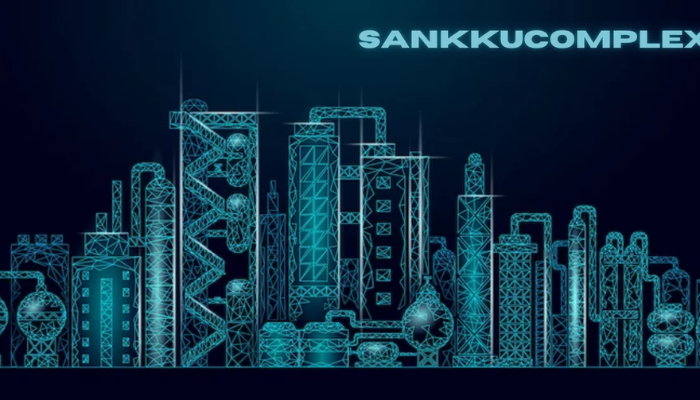
In today’s fast-paced digital culture, sankkucomplex has emerged as more than just a term—it’s a phenomenon that reflects deep-seated social sentiments around singlehood, self-image, and online culture. Blending humor, social commentary, and a dose of modern irony, this viral term is resonating with a generation that both critiques and embraces their relationship status. But what exactly is sankkucomplex, and why has it become so wildly popular?
In this blog post, we’ll break down the meaning of sankkucomplex, explore its origins, examine how it has exploded across social media platforms, and analyze its deeper cultural implications. From relatable memes to societal introspection, this term has created a space where humor meets identity. Let’s dive into the complexities behind this online cultural movement.
What is Sankkucomplex? Decoding the Term and Its Meaning
The term sankkucomplex is a portmanteau of “sankku,” a slang abbreviation for “single” in many Asian cultures, and “complex,” implying an emotional or psychological response. At its core, sankkucomplex refers to the internal and external feelings associated with being single—ranging from insecurity, overconfidence, to humorous self-awareness.
This term is not just another online buzzword. It symbolizes how digital natives express complex emotions through simplified, catchy language. While some wear their single status with pride, others use sankkucomplex to explore the subtle anxieties or comedic exaggerations of not being in a romantic relationship. This duality is what makes it so widely relatable.
The Cultural Origin and Evolution of Sankkucomplex
The roots of sankkucomplex lie in online communities, particularly those within East Asian internet culture where slang and abbreviations often reflect social trends. Initially, it was used lightheartedly in forums and meme pages to describe exaggerated reactions of single individuals seeing happy couples or wedding posts.
However, as social media platforms like Twitter, TikTok, and Reddit began adopting the term, it evolved into a broader commentary. Creators began using sankkucomplex to make skits, reaction videos, and even self-deprecating jokes that resonated with wider audiences. Its virality shows how language can evolve rapidly in the digital era, morphing from niche slang to a mainstream cultural reference.
Why Sankkucomplex Resonates with the Digital Generation
In a time when image curation and relationship highlights dominate platforms like Instagram and Facebook, many users feel the pressure to appear socially successful. This includes being in a relationship. Sankkucomplex gives users a way to express feelings of FOMO (fear of missing out) and self-reflection in a funny, non-threatening manner.
The term also reflects a shift in how the digital generation talks about emotional health. Instead of suppressing feelings of loneliness or societal comparison, sankkucomplex allows for a humorous acknowledgment of these emotions. It’s a coping mechanism that provides emotional release while simultaneously critiquing societal expectations—especially around love and dating.
Memes, Media, and Virality: How Sankkucomplex Took Over Social Platforms
One of the main drivers behind the popularity of sankkucomplex is its adaptability to meme culture. The term lends itself perfectly to reaction GIFs, relatable one-liners, and TikTok skits where creators reenact over-the-top single behavior. The comedic potential of the term has made it a favorite among content creators.
You’ll often find trending videos where someone dramatically sighs at a couple holding hands or zooms in on wedding photos with emotional music playing—captioned with #sankkucomplex. This relatability has led to millions of views and shares, making the term a mainstay in online humor. Brands have even started incorporating it into their content to connect with younger audiences who recognize the term instantly.
The Psychological and Social Implications of Sankkucomplex
While sankkucomplex is usually shared in jest, it subtly touches on deeper psychological themes like validation, self-worth, and societal pressure. People who identify with this term often do so because they feel a cultural nudge suggesting that singlehood is undesirable or a phase to be “fixed.”
However, the rise of sankkucomplex can also be seen as a form of reclaiming that narrative. Instead of hiding their single status, people use the term as a badge of honor—showcasing independence and a sense of humor. In this way, sankkucomplex becomes not just a joke but a cultural statement that challenges outdated norms and encourages self-acceptance.
Conclusion: Sankkucomplex as a Mirror of Modern Identity
In an age where digital communication defines much of our social reality, sankkucomplex has become more than just an internet trend—it’s a cultural artifact. It captures the intricate dance between humor, vulnerability, and identity in the age of social media. Whether it’s a cry for love, a celebration of freedom, or a relatable meme, the term gives voice to a shared experience in the language of the internet.
As we continue to navigate the evolving landscape of relationships and digital culture, terms like sankkucomplex help us better understand ourselves and others. They offer not just entertainment, but insight—into what it means to be single, self-aware, and socially connected in the modern world.
Frequently Asked Questions (FAQs)
1. What does sankkucomplex mean?
Sankkucomplex refers to the exaggerated emotional or humorous reaction individuals have toward being single, especially when seeing romantic content.
2. Where did the term sankkucomplex originate?
It originated from online Asian communities and gained popularity through memes and viral videos on social platforms like TikTok and Twitter.
3. Is sankkucomplex a negative term?
Not necessarily. While it may reflect insecurities, it’s often used humorously and can also empower individuals to own their singlehood.
4. Why is sankkucomplex trending on social media?
Its relatability, humor, and meme-worthy nature have made it a popular way to express feelings about being single in the digital age.
5. How do people use sankkucomplex in conversation?
Usually in a joking or self-aware tone, such as commenting “my sankkucomplex is showing” when reacting emotionally to couples’ content.
6. Can sankkucomplex be used in marketing?
Yes! Brands targeting younger audiences use the term to create relatable and humorous content that connects emotionally with viewers.
7. Is sankkucomplex only for single people?
While primarily used by singles, anyone can use the term humorously to describe exaggerated reactions to romantic content.
8. Does sankkucomplex have any psychological relevance?
Yes, it touches on themes of validation, societal pressure, and self-worth, making it more than just a meme—it reflects real feelings.
9. Are there similar slang terms to sankkucomplex?
Terms like “FOMO,” “situationship,” and “main character syndrome” also express modern emotional or social phenomena in catchy ways.
10. How do I know if I have sankkucomplex?
If you’ve ever felt dramatic or overly emotional after seeing romantic posts while being single—and laughed about it—you’re in the club!


